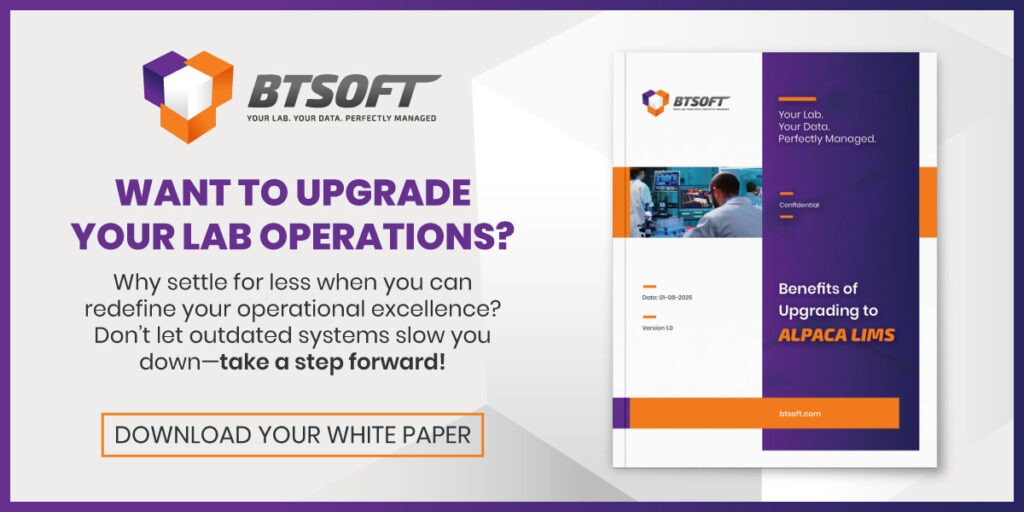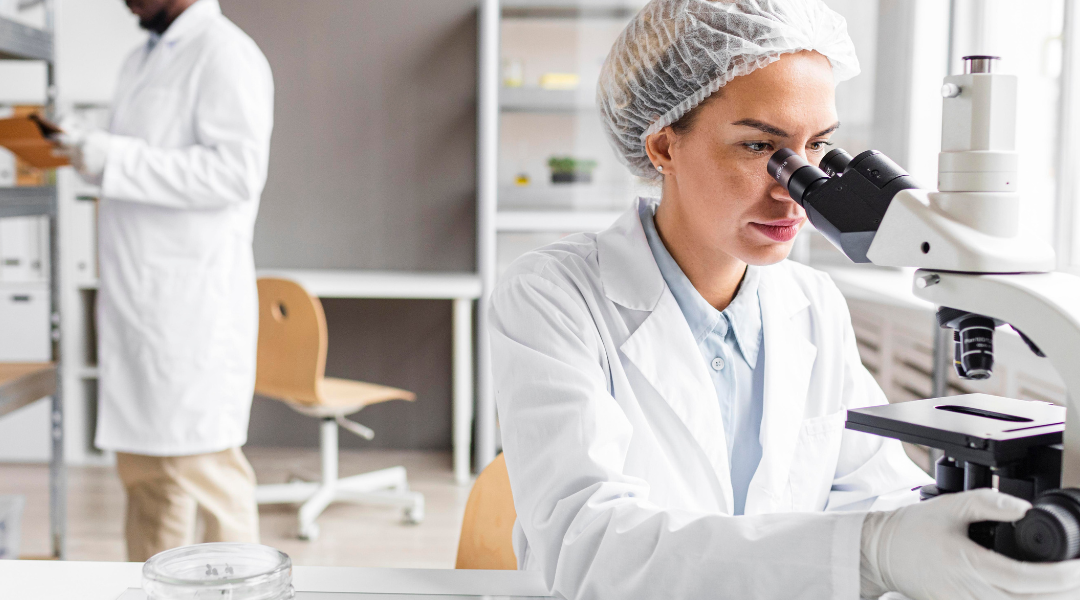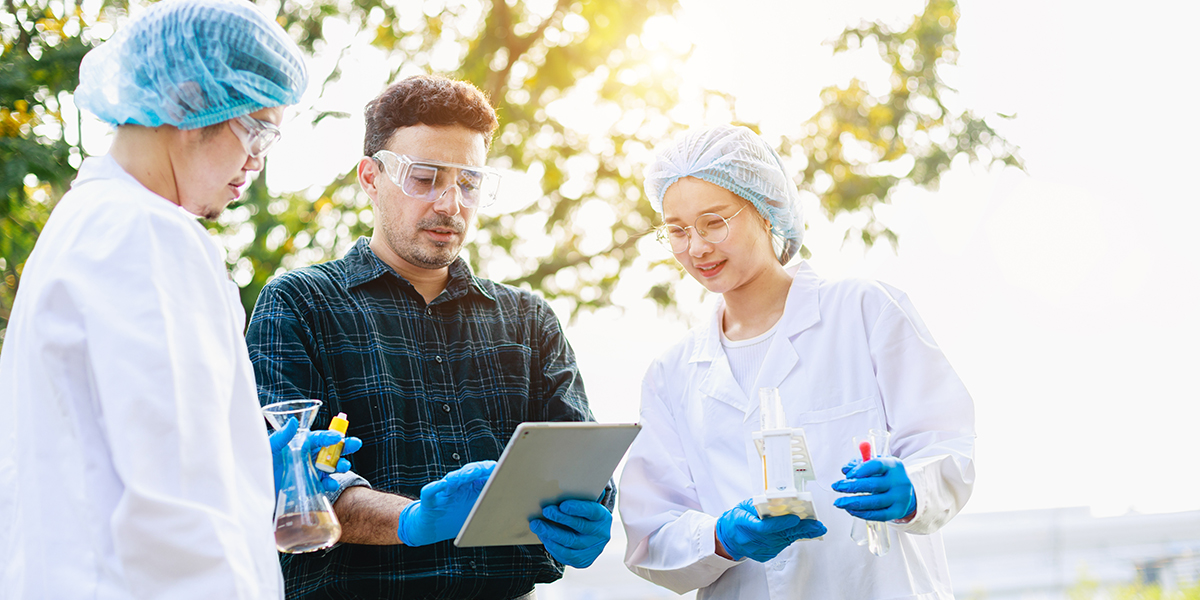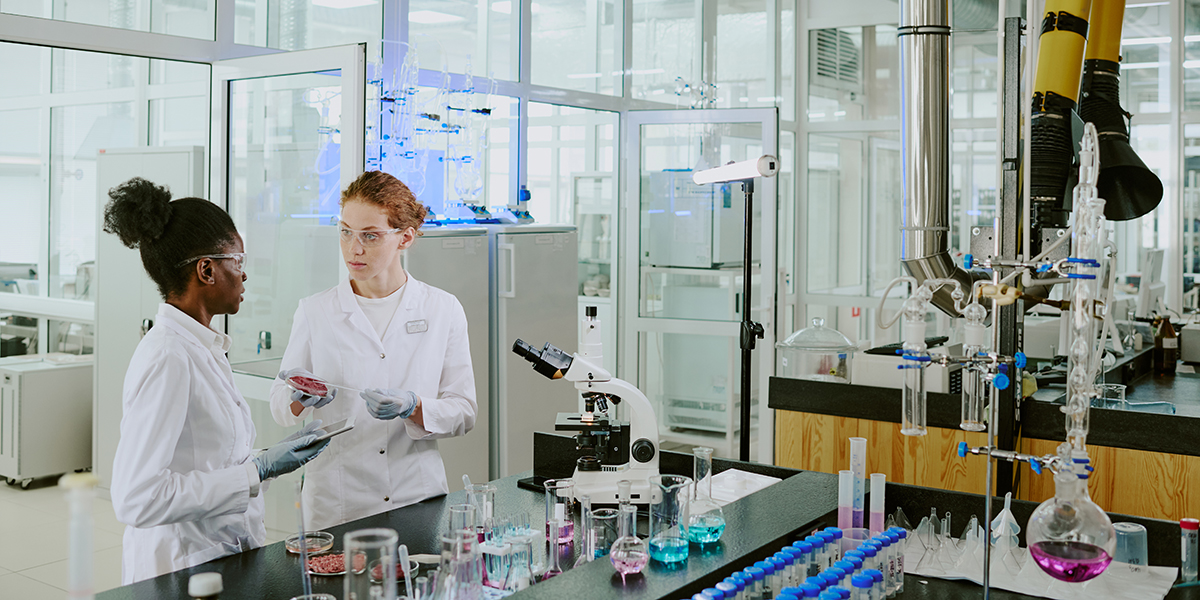Laboratory management plays a vital role in the accuracy and reliability of environmental testing results. It encompasses a comprehensive approach to optimizing lab operations, ensuring precise and trustworthy results. Let’s go over the importance of lab management in environmental testing and explore how it contributes to the integrity of lab results.
The right lims makes all the difference, download our guide
The Components of Effective Laboratory Management
Laboratory management is a multifaceted approach that involves optimizing various aspects of lab operations, including workflow, resource management, quality control, and data management. It requires the collaboration and expertise of a team of professionals, including laboratory managers, scientists, analysts, information technology specialists, and quality assurance personnel.
Effective lab management can improve the accuracy and reliability of testing results, enhance data traceability and accessibility, and promote regulatory compliance. It can be improved through the implementation of standardized operating procedures, automation of manual processes using laboratory information management systems (LIMS), and ongoing training and professional development of staff. By prioritizing laboratory management, environmental testing labs can deliver high-quality, trustworthy results that meet the needs of their clients and stakeholders.
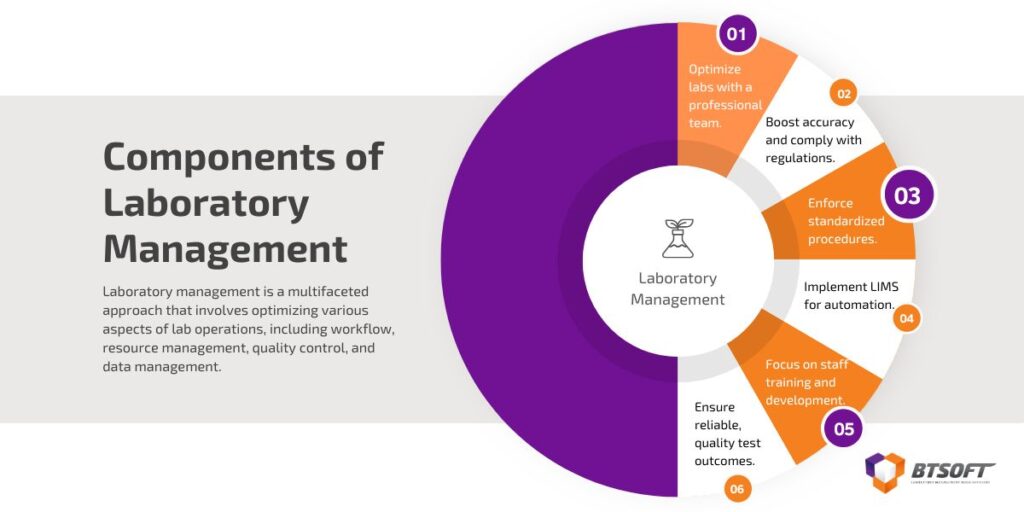
The Importance of Laboratory Management
At the core of successful environmental lab testing lies effective laboratory management. It utilizes a multifaceted approach which optimizes various aspects of lab operations, ensuring accurate results, efficient workflows, and adherence to regulatory requirements.
Workflow Optimization
Efficient laboratory management involves standardizing processes and protocols to streamline workflows, reduce errors, and maximize productivity. This can be achieved through efficient sample handling procedures, implementing automated testing processes, and promoting effective communication and coordination among lab staff.
Resource Management
Effective laboratory management ensures optimal utilization of resources—such as equipment, personnel, and supplies—for uninterrupted lab operations. This can be achieved by maintaining an inventory management system to track and replenish supplies, scheduling preventive maintenance to optimize equipment usage, and strategically assigning staff to tasks based on their expertise.
Quality Control
Maintaining high-quality standards is essential in environmental labs to ensure accurate and reliable testing results. Effective laboratory management incorporates comprehensive quality assurance practices, such as implementing standardized operating procedures, conducting regular training to enhance staff capabilities, performing internal and external quality control tests, and participating in proficiency testing programs to validate the accuracy and precision of test results.
Data Management and Traceability
Robust laboratory management systems and information technology infrastructure are invaluable for managing and tracing laboratory data. Effective data management can be achieved by establishing secure data repositories, implementing standardized data formats for efficient data exchange and integration, and maintaining comprehensive documentation to ensure the traceability of lab processes and results. This enables enhanced analysis, better decision-making, and regulatory compliance.
The Role of LIMS in Laboratory Management
Effective laboratory management is essential for successful environmental lab testing. A critical component of laboratory management is utilizing Laboratory Information Management Systems (LIMS), which are essential tools in lab operations. LIMS are designed to provide efficient workflows, streamlined sample tracking, enhanced data management, and improved regulatory compliance. These benefits contribute significantly to the success of laboratory operations, enabling labs to produce accurate results in an efficient manner. Laboratory Information Management Systems (LIMS) are essential tools in efficient laboratory management. They contribute to:
Streamlined Sample Management
One significant advantage of LIMS is streamlined sample management. By automating sample tracking, handling, and storage processes, LIMS improve efficiency, minimize errors, and ensure accurate sample identification.
Efficient Workflow and Resource Management
Another benefit is efficient workflow and resource management. LIMS automates lab tasks, including test scheduling and instrument calibration management. This optimization of workflow enables effective resource allocation and ensures timely completion of tests.
Enhanced Data Management and Traceability
LIMS also contribute to enhanced data management and traceability. By providing centralized data management systems, LIMS improves laboratory data integrity and enables easy access, analysis, and reporting. This centralization enhances traceability and simplifies data retrieval for auditing and analysis purposes.
Improved Regulatory Compliance
Furthermore, LIMS play a vital role in improving regulatory compliance. They assist labs in generating reports, maintaining proper documentation, and simplifying auditing processes. Compliance with regulations and industry standards, such as ISO 17025, is ensured through the use of LIMS.
BTSOFT: Implementing Effective Management
Implementing an effective laboratory management system is essential for ensuring accuracy, reliability, and integrity of results in environmental testing. At BTSOFT, we provide LIMS solutions with comprehensive sample management, data analysis, instrument integration, and quality control features. With our solutions, laboratories can improve data accuracy, reduce errors, and enhance data traceability. Schedule a demo to learn more about how our LIMS solutions can help you deliver reliable and trustworthy environmental testing results.
